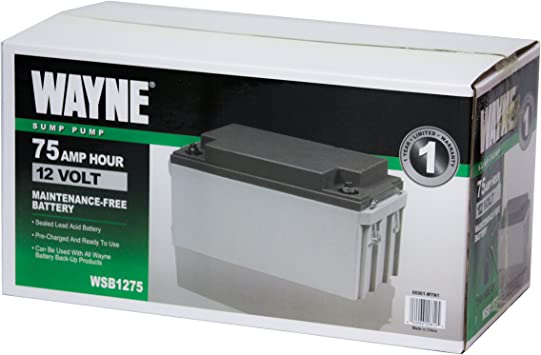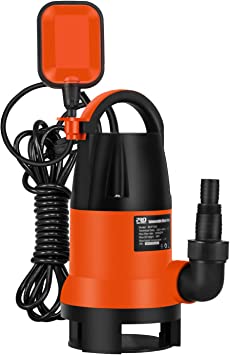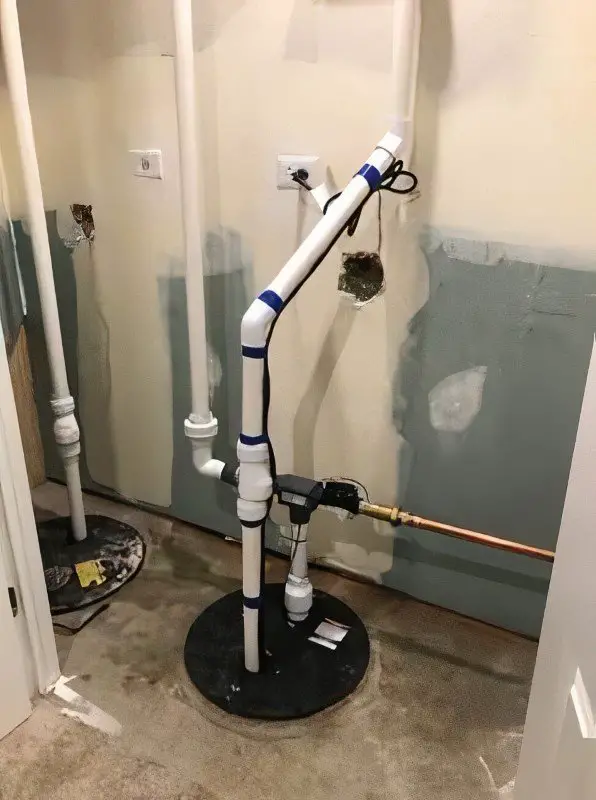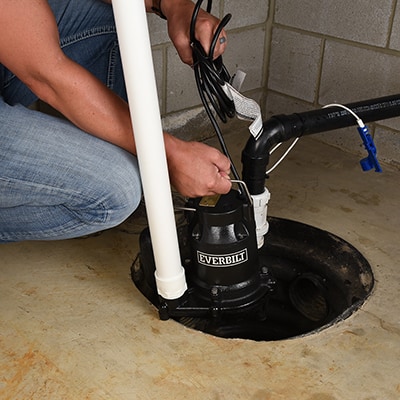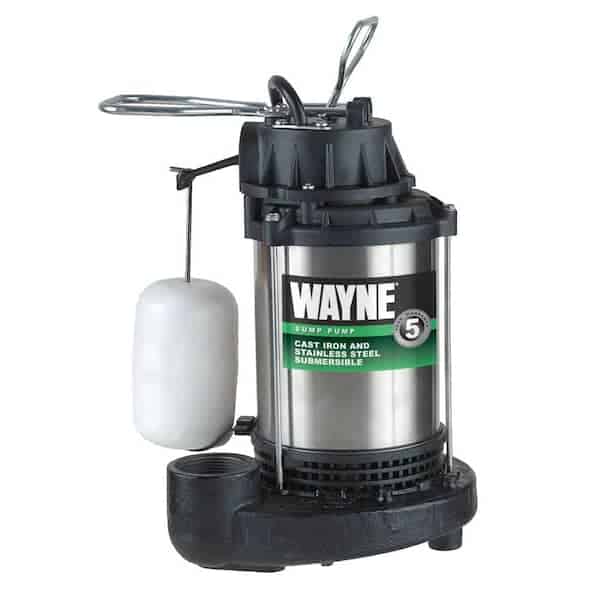Is There a Sealed Battery for Sump Pump Backup
If your power goes out, you may be in for a wet basement. But if you have a sump pump backup system with a sealed battery, you can rest assured that your basement will stay dry. A sealed battery is an important part of a sump pump backup system because it ensures that the pump will continue to run even if the power is out.
If you live in an area that is prone to flooding or power outages, you may be considering a sump pump backup system. One question you may have is whether there is a sealed battery for sump pump backup.
The answer is yes, there are sealed batteries for sump pump backup systems.
These batteries are designed to be maintenance-free and can provide reliable power for your sump pump in the event of a power outage. Sealed batteries also have the advantage of being safer than traditional lead-acid batteries, as they do not release harmful fumes if they are damaged or overheated.
If you are considering a sump pump backup system, be sure to choose a quality battery that will meet your needs.
A sealed battery for sump pump backup is a great option for those who want reliable power and peace of mind in the event of a flood or power outage.
What's the Best Type of Backup Sump Pump Battery?
Backup Battery for Sump Pump
Most people don’t think about their sump pump until it’s too late. A backup battery for your sump pump can be a lifesaver during a power outage or severe weather event.
A sump pump is typically used to remove water that has accumulated in a basement or crawlspace.
It is usually installed in a pit at the lowest point in the area to be drained. Sump pumps are often used in homes built on slabs or with basements that are prone to flooding.
If your home is subject to flooding, you may want to consider investing in a backup battery for your sump pump.
This will ensure that your pump can continue to operate even if the power goes out. A backup battery will also protect your pump from damage if there is a power surge.
When choosing a backup battery for your sump pump, you’ll need to decide which type of battery is best for you.
Lead-acid batteries are the most common type of batteries used for this purpose. They’re relatively inexpensive and have a long lifespan. However, they’re also heavy and require regular maintenance.
Lithium-ion batteries are becoming more popular as they’re lighter weight and require less maintenance than lead-acid batteries. However, they’re more expensive upfront.
No matter which type of battery you choose, make sure it’s compatible with your specific model of sump pump.
You’ll also want to make sure it’s properly rated for the amount of water your pump needs to move on a regular basis.
Best Battery for Sump Pump Backup
If you live in an area that is prone to flooding or power outages, then you know how important it is to have a reliable sump pump backup system in place. But what many people don’t realize is that the battery that powers their backup sump pump is just as important as the pump itself.
There are two main types of batteries that can be used for a sump pump backup system: lead acid and lithium ion.
Lead acid batteries are the most common type of battery used for this application because they are relatively inexpensive and have a long lifespan. However, they are also quite heavy and can be difficult to install.
Lithium ion batteries, on the other hand, are much lighter weight and easier to install but they are also more expensive.
However, many people feel that the extra cost is worth it because lithium ion batteries provide a longer run time and shorter recharge time than lead acid batteries.
So which type of battery is best for your sump pump backup system? Ultimately, it depends on your specific needs and budget.
If you need a long-lasting battery that won’t break the bank, then lead acid is probably your best bet. But if you’re willing to spend a bit more money upfront for a lighter weight and longer lasting battery, then lithium ion is probably the way to go.
Sump Pump Battery Replacement
If your sump pump runs on battery power, it’s important to regularly check the battery and replace it as needed. A sump pump battery typically lasts for 3-5 years, but this can vary depending on the brand and quality of the battery.
To check the status of your sump pump battery, simply remove the cover of the sump pit and look at the battery.
If it looks corroded or damaged in any way, it’s time for a replacement.
Installing a new sump pump battery is relatively simple and can be done in just a few minutes. Start by disconnecting the old battery from the sump pump and then removing it from the pit.
Next, insert the new battery into the pit and connect it to the sump pump. Finally, replace the cover on the pit and you’re all set!
Maintenance Free Sump Pump Battery
When it comes to sump pumps, one of the most important components is the battery. This is what provides power to the pump in the event of a power outage or other emergency. A good battery will ensure that your sump pump can continue to operate even when the electricity is out.
There are two main types of batteries used in sump pumps: lead-acid and lithium-ion. Lead-acid batteries are more affordable, but they require more maintenance than lithium-ion batteries. Lithium-ion batteries are more expensive, but they last longer and require less maintenance.
No matter which type of battery you choose, it’s important to make sure that it is properly maintained. This means keeping it clean and free of debris, as well as making sure that it is charged on a regular basis. A good rule of thumb is to charge the battery every six months or so.
If you’re looking for a maintenance-free sump pump battery, then lithium-ion is the way to go. These batteries require little to no upkeep and will last for many years with proper care. If you want the most affordable option, then lead-acid batteries are a good choice.
Just be prepared to do a bit more work to keep them running properly.
Watchdog Maintenance Free Battery Installation
Watchdog Maintenance Free Battery Installation
It’s always a good idea to have a backup battery for your computer or laptop, in case of power outages or other emergencies. But if you don’t want to deal with the hassle of maintaining and replacing batteries regularly, consider getting a maintenance-free battery instead.
Watchdog makes a great option that can be easily installed and will provide long-lasting power for your device. Here’s a step-by-step guide on how to install it.
1. Start by unplugging your computer or laptop from any power source.
You’ll also need to remove any existing batteries from their slots.
2. Locate the slot for the new battery on the back or side of your device. It may be labeled as the “CMOS” or “RTC” battery slot.
3. Gently insert the Watchdog battery into the slot, making sure that the positive (+) end is facing up (toward you). If it doesn’t fit snugly, try flipping it over and inserting it again.
4 .
Best Agm Battery for Sump Pump Backup
Are you looking for the best AGM battery for your sump pump backup? If so, you’ve come to the right place. In this blog post, we’ll take a detailed look at the best AGM batteries on the market and what makes them ideal for sump pump backup applications.
We’ll also provide some tips on how to choose the right AGM battery for your needs.
AGM batteries are known for their reliability and long lifespan. That’s why they’re often used in mission-critical applications like sump pump backup systems.
When choosing an AGM battery for your sump pump backup system, it’s important to consider the following factors:
1. Capacity: The capacity of an AGM battery is measured in amp hours (Ah). A higher Ah rating means a longer run time between charges.
Choose an AGM battery with a capacity that meets or exceeds your sump pump’s power requirements.
2. Reserve Capacity: The reserve capacity of an AGM battery is measured in minutes. It indicates how long the battery can sustain a certain discharge rate before its voltage drops below a minimum level required for proper operation of most 12-volt devices.
Choose an AGM battery with a reserve capacity that meets or exceeds your sump pump’s power requirements.
3.. Voltage: Most sump pumps require 12 volts of DC power to operate properly.
Some higher-end models may require 24 volts of DC power. Make sure to choose an AGM battery with the correct voltage rating for your sump pump model.
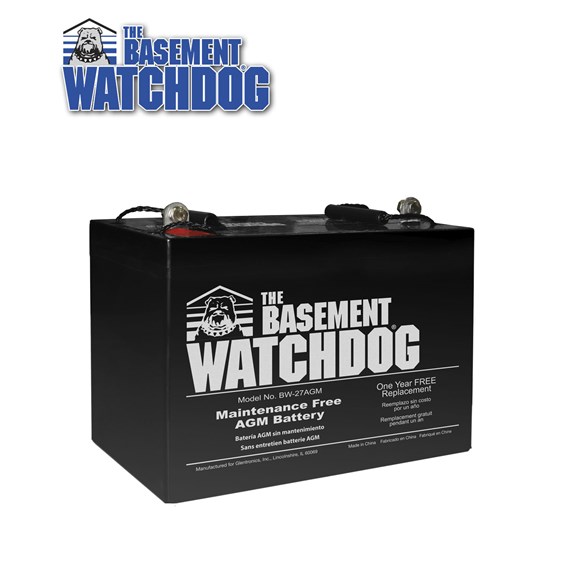
Credit: www.basementwatchdog.com
Can You Use a Lithium Battery for Sump Pump?
If you’re in the market for a new sump pump, you might be wondering if a lithium battery is a good option. The short answer is yes, you can use a lithium battery for your sump pump. However, there are a few things to consider before making your purchase.
Lithium batteries are more expensive than traditional lead-acid batteries, but they offer a number of advantages. For starters, they’re much lighter and easier to handle. They also have a longer lifespan – up to 10 years in some cases – so you won’t need to replace them as often.
And because they don’t produce corrosive gases when charging, they’re safer to use indoors.
Of course, there are also some drawbacks to using lithium batteries for your sump pump. One is that they require special chargers; not all chargers will work with lithium batteries.
Additionally, if your power goes out and you’re relying on battery power alone, the shorter lifespan of lithium batteries means you’ll need to keep an eye on them and replace them sooner than you would with lead-acid batteries.
Ultimately, whether or not you choose to use a lithium battery for your sump pump depends on your budget and needs. If you can afford the upfront cost and don’t mind replacing the battery more frequently, then it’s definitely worth considering this option.
Can I Use Agm Battery for Sump Pump?
AGM batteries are often used in sump pumps because they are maintenance-free and have a long lifespan. AGM batteries can withstand deep discharge cycles, which makes them ideal for sump pump applications. However, AGM batteries are more expensive than other types of batteries, so it is important to weigh the cost versus the benefits before making a purchase.
How Often Should You Replace a Back Up Sump Pump Battery?
Most people don’t think about their sump pump until it’s too late. But if you have a basement, it’s important to keep your sump pump in good working order, especially if you live in an area with a high water table or are at risk for flooding. One of the most important parts of a sump pump is the battery backup.
This ensures that your sump pump will continue to work even if there’s a power outage.
So how often should you replace your backup sump pump battery? The answer may surprise you.
“You should replace your backup battery every three to five years, even if it’s working,” says Bob Vila, home improvement expert and host of Home Again with Bob Vila on PBS. “Batteries are like lightbulbs—they have a finite lifespan.”
If you wait too long to replace your backup battery, you could be putting your home at risk.
If your primary sump pump fails and there’s no power to run the backup, you could be dealing with serious flooding damage.
To be on the safe side, set a reminder in your calendar or phone for when it’s time to replace the battery. That way, you can rest easy knowing that your basement is protected against flooding—no matter what Mother Nature throws at us!
What Battery Should I Use for a Sump Pump Backup?
There are many factors to consider when choosing a battery for a sump pump backup. The size of the battery, the type of battery, and the price are all important factors to consider.
The most important factor to consider is the size of the battery.
The larger the battery, the longer it will last in a power outage. A small battery may only last for a few hours, while a large battery may last for days.
The type of battery is also important.
Lead acid batteries are the most common type of batteries used for sump pump backups. They are relatively inexpensive and have a long lifespan. However, they are heavy and require maintenance (such as adding water to them regularly).
Lithium ion batteries are newer and more expensive, but they are much lighter and do not require any maintenance.
Finally, you need to consider the price when choosing a battery for your sump pump backup. Lead acid batteries are usually less expensive than lithium ion batteries, but they don’t last as long and require more maintenance.
If you can afford it, lithium ion batteries are generally the better choice since they’re lighter, don’t require any maintenance, and last longer than lead acid batteries.
Conclusion
If you’re looking for a sump pump backup battery, there are a few things to consider. First, you’ll need to decide if you want a sealed or unsealed battery. Sealed batteries are maintenance-free and can be used in any orientation, but they’re more expensive.
Unsealed batteries require regular checking and maintenance, but they’re less expensive. Second, you’ll need to decide what capacity (amp-hours) you need. A larger capacity battery will run your sump pump longer in the event of a power outage, but it will also cost more.
Third, you’ll need to decide what voltage (12V or 24V) you need. 12V is the most common voltage for sump pump backup batteries, but if your sump pump uses a float switch, you may need a 24V battery. Finally, make sure to choose a battery that’s compatible with your specific sump pump model.

